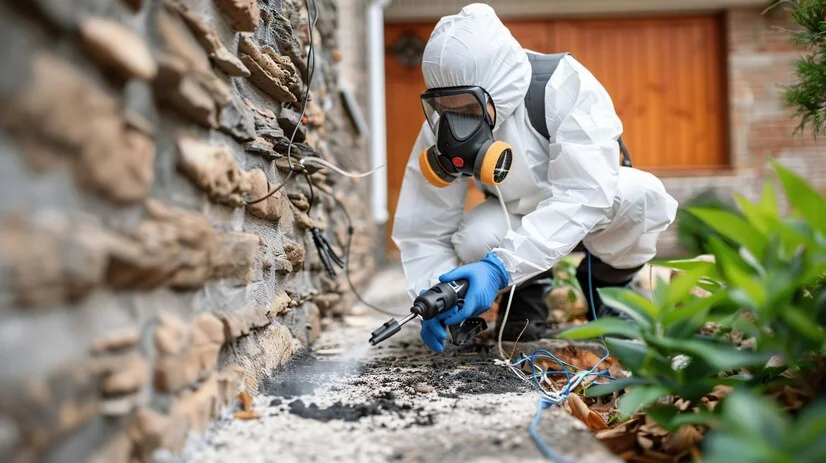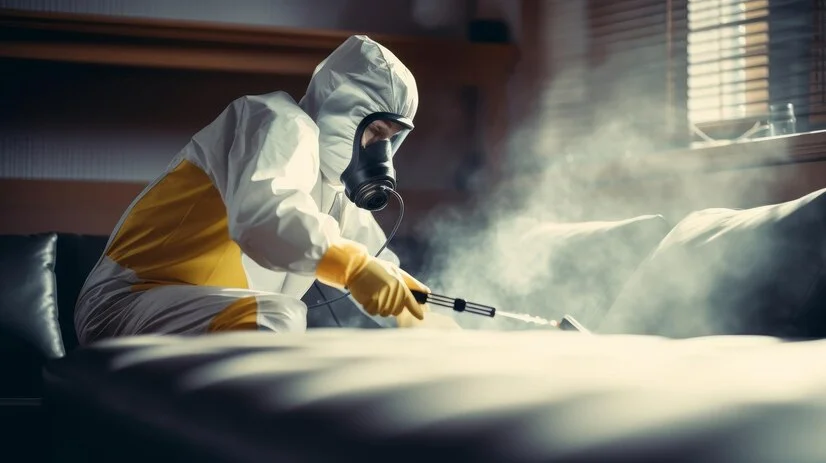-
Govind Bhawan,Kolkata - 700001
Govind Bhawan,Kolkata - 700001

Discover why winter is an ideal season for termite inspection, with insights on seasonal termite behavior and the best approaches to protect your property. Tips from one of the Best Pest Control Companies in Kolkata.

When winter arrives, homeowners often turn their attention indoors, assuming that pest threats are low until spring. However, this common misconception can lead to trouble—especially with termites. While termites might appear less active during colder months, winter can actually be one of the most strategic times to schedule an inspection. Here’s why a winter inspection could be just what your home needs to stay safe year-round.

Termites are often mistakenly thought to go dormant in winter, but in reality, they’re active year-round, especially in well-insulated homes. These pests thrive in warm, protected areas such as crawl spaces, basements, and interior walls. Even if temperatures drop, the conditions inside your home allow termites to remain active and cause damage.
Key Reasons Why Termites Don’t Hibernate:
Fact: Even when termites are less visible, they continue to feed on wood 24/7. Scheduling an inspection in winter can help catch an infestation before it spreads further.
Winter inspections offer several advantages, from easier detection to reduced repair costs. Here’s why a winter termite inspection is highly recommended:
One of the biggest reasons to inspect in winter is the opportunity to catch infestations early. Since termites are less likely to swarm and relocate in winter, identifying an issue now helps prevent colonies from multiplying as temperatures rise in spring.
Winter means reduced yard and garden activity, making it easier for professionals to spot early signs of termites around your home’s exterior. With fewer plants and no overgrown foliage, professionals from the Best Pest Control Company in Kolkata can conduct a comprehensive inspection without interference.
Termite swarming season begins in spring, which is when colonies send out reproductive members to form new colonies. By scheduling an inspection in winter, you can address any termite issues before swarming season, reducing the risk of extensive infestations as the weather warms.
Unchecked termite damage can lead to costly repairs if left untreated. Wood damage from termites often compromises the structural integrity of homes, requiring extensive repair work. With a winter inspection, you can detect problems early and avoid these expenses by taking preventive action before the damage worsens.
During a winter inspection, pest control experts focus on areas that are commonly overlooked by homeowners. Here’s what a comprehensive inspection from the Best Pest Control Company in Kolkata typically includes:
Since termites build mud tubes to travel from their nests to wood, the inspection begins with the foundation and surrounding soil. Mud tubes protect termites from the elements as they travel, allowing them to reach food sources inside your home.
Inside the home, exposed wood structures are carefully inspected for signs of termite activity. Experts use tapping techniques to check for hollow sounds, which indicate wood damage, as well as specialized tools that can detect changes in wood density.
Dark, damp, and undisturbed, crawl spaces and basements are often prime locations for termites. Winter inspections pay special attention to these spaces, where termites may remain hidden and active throughout the year.
Since termites are highly attracted to moisture, bathrooms, kitchens, and laundry areas are inspected for signs of infestation. Leaky pipes, poorly sealed windows, and other moisture sources are noted for follow-up.
Wondering How to Protect Your Home Year-Round?
Learn More on Prevention and Expert Solutions for a Pest-Free Home.
A reliable inspection can be the first step to lasting peace of mind.
If you’re unsure whether you need an inspection, here are some telltale signs that termites may be present in your home. If you notice any of these signs, contacting the Best Pest Control Company in Kolkata is a wise choice:
A winter inspection is just the first step to protecting your home. Following these preventative tips can help minimize the risk of termites taking up residence:

Q1: Are termites inactive during winter?
Not exactly. Termites slow down in colder weather but remain active, especially inside homes and underground where temperatures are more stable.
Q2: Why should I get a termite inspection in winter instead of spring?
Winter inspections allow you to catch infestations before they spread. In spring, termites swarm to create new colonies, which can worsen infestations.
Q3: Can I inspect for termites myself?
While you can look for visible signs, professional inspectors from the Best Pest Control Company in Kolkata are trained to identify hidden infestations and use specialized tools for a more thorough check.
Q4: Are winter treatments effective?
Yes, winter treatments work effectively and can prevent springtime swarms, minimizing the risk of extensive infestations.
Q5: How often should I schedule a termite inspection?
For most homes, an annual inspection is recommended. However, if you’ve had previous termite issues, biannual inspections may be ideal.
Winter termite inspections are a proactive step in maintaining your home’s structural integrity and avoiding costly repairs. Even when termite activity appears reduced, these pests are capable of causing damage if they go undetected. By scheduling a winter inspection, homeowners gain peace of mind knowing they’ve taken a preventive approach to termite control.
If you’re considering an inspection, the Best Pest Control Company in Kolkata, Pestonix, offers thorough, professional service tailored to detect early signs of termites and other pests. From assessing exterior risks to identifying subtle interior infestations, their team of experts ensures your home stays protected all year long.
Taking action in winter isn’t just practical—it’s an investment in your home’s long-term health. Don’t wait until spring; a proactive winter inspection could be the key to preventing a more extensive and costly problem.